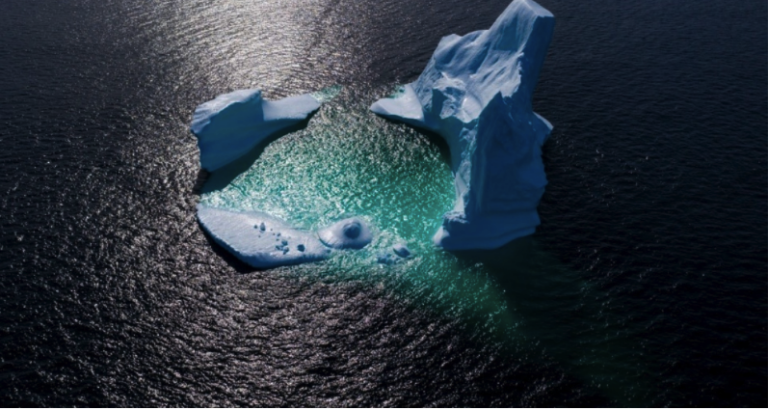The dramatic rise in ocean temperatures is worrying scientists, who are calling for more research into the changes being caused, expressing fears of catastrophic effects on the climate as a whole.
“The changes are happening so fast that we are not able to monitor the impact” they are having, acknowledges Vidar Helgesen, executive secretary of UNESCO’s Intergovernmental Oceanographic Commission, who stresses that “there is an urgent need to address ocean warming”.
“It is necessary to make greater efforts in real-time observation and research,” he told AFP at the Ocean Decade Conference in Barcelona, which was attended by 1,500 scientists, representatives of states or organisations, and is concluding its work today.
The temperature of the oceans, which cover 70% of the Earth’s surface and play a major role in regulating the global climate, reached a new all-time record in March, with an average of 21.07 degrees Celsius measured at sea level, excluding the zones near the poles, according to the European observatory Copernicus.
This rise in temperature, which has not stopped getting worse month after month for a year, threatens marine life and causes more moisture in the atmosphere, which is synonymous with more unstable weather conditions, such as strong winds and torrential rain.
“The oceans can’t absorb heat at an infinite rate”
According to experts, the oceans have absorbed 90% of the excess heat caused by human activity since the beginning of the industrial era. Marine environments, which produce almost half of the oxygen we breathe, have thus allowed the Earth’s surface to remain habitable.
“The ocean has a much higher heat capacity than the atmosphere, it absorbs much more heat, but it cannot absorb it to infinity,” warned Cristina Gontalez Arro, a researcher at the Institute of Marine Sciences in Barcelona.
According to a report study released in January, the oceans absorbed a huge amount of energy in 2023, so much so that it could boil the water from “billions of Olympic-sized swimming pools”.
One of the big goals of the Ocean Decade (2021-2030) is for the world to expand its knowledge of ocean warming and decipher its multiple complications in order to try to reduce it.
“We are still unaware of many things about the oceans. We have only mapped about 25% of the world’s seabed and, at the same time, we have to map and directly monitor the changes caused by climate change,” Holgesen stressed.
According to the World Meteorological Organization, a UN agency, more than 90% of the world’s oceans experienced heat waves at some point in the year 2023, with a direct impact on climate and ecosystems across the globe (…) no matter how far they were from the sea.
“We are on a path that raises many questions for scientists and makes us wonder whether we have underestimated the coming global warming,” warned Jean-Pierre Gattuso, an expert at the French National Centre for Scientific Research (CNRS), speaking from Barcelona.
The difficulties in implementing major international environmental agreements, such as the Paris Agreement concluded in 2015 and aimed at limiting global warming, do not, however, give cause for optimism, according to the scientists.
“There are many of us who feel a certain disappointment as we see that despite the scientific evidence of climate change and its consequences, the implementation of the Paris Agreement is so slow, so difficult, so painful. This does not bode well” for the future, Gattuso noted.
Language developed 8 times earlier than previously thought, says new book (video)
The researchers do, however, point to some positive signs, such as the adoption in 2023 by UN member states — after 15 years of talks — of a historic agreement to protect the high seas.
“If I could send a message to those in the decision-making centres, to presidents, prime ministers, or heads of businesses, I think it would be this: ‘take a moment out of your busy schedules and look your children and grandchildren in the eye,'” Helgesen appealed.
“Every tenth of a degree counts, every year gained counts, and it’s never too late. It is imperative that we do not give up,” Jean-Pierre Gattuso appealed in the same spirit.
Ask me anything
Explore related questions





